The Crafter's Dominion: A Dungeon Core Novel (Dungeon Crafting Book 5) by Jonathan Brooks (best english books to read TXT) 📗
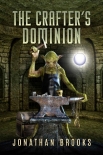
- Author: Jonathan Brooks
Book online «The Crafter's Dominion: A Dungeon Core Novel (Dungeon Crafting Book 5) by Jonathan Brooks (best english books to read TXT) 📗». Author Jonathan Brooks
So saying, Sandra spent a few minutes plugging in different Monster Seeds, seeing if she could figure out something that was inexpensive-yet-“viable”. Different kinds of metals, including Titanium, almost all had a 100% Viability, but even Copper and Tin were at least 15 Mana more than the normal Powered Arachnid. Pine wood was less expensive at 15 Mana, but only had a 50% Viability; whether that made it splinter apart after traveling a mile or so, or because it was otherwise fragile was hard to determine, but Sandra didn’t want to waste another 1,000 Mana to test it for just a small savings in the end.
Thread and leather were equally poor choices as far as Viability went, with a rating of 5% and 15%, respectively. Gemstones like Sapphire and Onyx were at a 90% Viability, probably because they weren’t necessarily as durable as metal, but they were outrageously expensive at 500 Mana. Not that she couldn’t afford to create them, but they wouldn’t help her with her absorption issues.
Weirdly, Raw Bearling and Crag Hound Meat had a Viability of 75%; she couldn’t even begin to picture what these would look like, and was hesitant to even attempt it. Fortunately, the Mana Cost for them was 50, which made them too expensive as a means of easier absorption.
Clays of different types were around 30% to 40%, which either meant they were soft and pliable, or fired hard like pottery; either situation wouldn’t work well in terms of durability if they were traveling around the wasteland and beyond. Sandra pictured a hard-fired Pottery Spider falling down a small hill and shattering into dozens of shards upon impact.
Dragon Glass, as opposed to what she had expected of “glass”, had a Viability of 95%! It was too bad that it cost 800 Mana for a single Monster, but it was good to know that she could create something like that if she ever had to invade the Beast dungeon, which was full of heat and flame traps.
Lastly, with the “normal” Monster Seeds unsuccessful, Sandra turned to her Elemental Orbs. Unfortunately, trying to select one of them for her Powered Arachnid was impossible – it was like they weren’t available at all.
“Based on the results you’ve had so far—” Winxa interjected— “I think the Elemental Orbs would impart a certain element to the original Dungeon Monster. Since they are already all of the elements, it probably isn’t compatible.”
That would certainly explain it. Hmm…if that’s the case, I wonder if….
Dungeon Monster Creation
Dungeon Monster
Origination Material
Monster Seed(s)
Binding Agent
Radiant Giant Pegasus
None
Tiny Fire Elemental Orb
Fairy Tear
Potential Viability
80%
Initial Skill Mana Cost
20000
Initial Raw Materials Cost
6000
Dungeon Monster Mana Cost
9000
New Dungeon Monster Name
Radiant Ember Giant Pegasus
That was certainly interesting; there was an option to add another element to one of her Dungeon Monsters via her Advancement Options, but this Skill looked like it could do the same thing. Granted, the Initial Skill Mana Cost was high at 20,000, and the cost of creating the new Fire-and-Light-Element Pegasus was 9,000 as opposed to the original 8,000, but it might be worth it. The 80% Viability was lower than she expected, however, though some experimentation with larger Orbs and even Cubes eventually brought it all the way up to 99% – bringing all of the Costs up greatly as well. Not only that, but the name changed with the different sizes, ending up using a Radiant Inferno Giant Pegasus with a Large Fire Elemental Cube. Perhaps it gives the Dungeon Monster additional elemental energy? It was impossible to tell without actually going through some experimentation, but she didn’t have the time nor the Mana to do that right now.
Which brought her to the only other thing she could add to the Powered Arachnid to affect some sort of change that would make it less expensive: Origination Materials. A very quick check of most of them, including everything she had used as Monster Seeds, revealed that they had exactly the same Viabilities as their Seed equivalent, though their Initial Mana Costs were about a third of the Seed Costs. For example, the Salt Strider she had created before, which cost 1,000 Mana and 100 Raw Materials, only cost 350 Mana and 35 Raw Materials; she was disappointed with herself for not trying that part out first, saving her some resources. Despite these savings, though, the Dungeon Monster Mana Cost was exactly the same.
That left a short list of Origination Materials that weren’t used for Monster Seeds at all, but that could be applied to her construct.
Non-Monster Seed Origination Materials:
Coal
Jute Seed
Flax Seed
Cotton Seed
Finely Woven Burlap Cloth
Finely Woven Linen Cloth
Finely Woven Cotton Cloth
Oak Tree Seed
Maple Tree Seed
Pine Tree Seed
Ash Tree Seed
Cedar Tree Seed
Birch Tree Seed
Redwood Tree Seed
Yew Tree Seed
Ironwood Tree Seed
Apple Tree Seed
Pear Tree Seed
Peach Tree Seed
Plum Tree Seed
Apricot Tree Seed
Orange Tree Seed
Lemon Tree Seed
Lime Tree Seed
Crude Cedarwood Oil
Wheat Seed
Barley Seed
Hops Rhizome
Potato Cutting
Clear Glass
(more)
Unfortunately, after using everything on the list, none of them had a Viability over 25% – and that was for Coal, of all things. Making
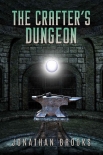
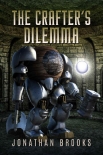
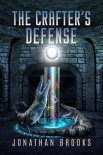
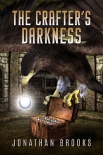

Comments (0)